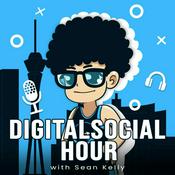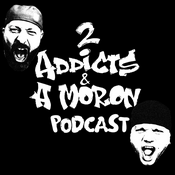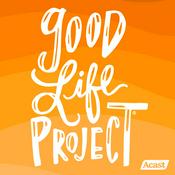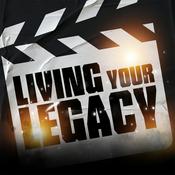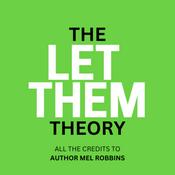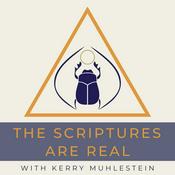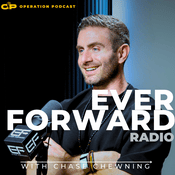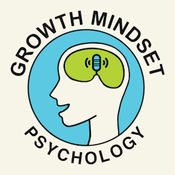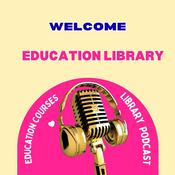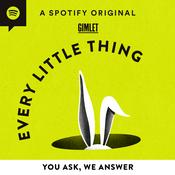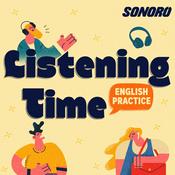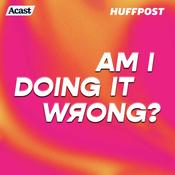272 episodes

The Life-Changing Power of Making Repairs w/ Dr. Sarah Michaud
1/01/2026 | 1h 11 mins.
Making amends, making repairs is even more powerful than self forgiveness or self-compassion. When you learn to fix the harms you've caused you can truly find emotional freedom. Learn the skills to Regulate your Emotions, join the membership: https://courses.therapyinanutshell.com/membership Where to find Dr. Sarah Michaud https://www.youtube.com/@leavingcrazytown https://drsarahmichaud.com/ Ted Talk: Our story of rape and reconciliation - Thordis Elva and Tom Stranger https://www.youtube.com/watch?v=gyPoqFcvt9w In this conversation, Dr. Sarah Michaud and I explore the profound themes of self-compassion, forgiveness, and the importance of making amends. We discuss how guilt and shame can manifest in our lives and the courage required to face our mistakes. Looking for affordable online counseling? My sponsor, BetterHelp, connects you to a licensed professional from the comfort of your own home. Try it now for 10% off your first month: https://betterhelp.com/therapyinanutshell Learn more in one of my in-depth mental health courses: https://courses.therapyinanutshell.com Support my mission on Patreon: https://www.patreon.com/therapyinanutshell Sign up for my newsletter: https://www.therapyinanutshell.com Check out my favorite self-help books: https://kit.co/TherapyinaNutshell/best-self-help-books Therapy in a Nutshell and the information provided by Emma McAdam are solely intended for informational and entertainment purposes and are not a substitute for advice, diagnosis, or treatment regarding medical or mental health conditions. Although Emma McAdam is a licensed marriage and family therapist, the views expressed on this site or any related content should not be taken for medical or psychiatric advice. Always consult your physician before making any decisions related to your physical or mental health. In therapy I use a combination of Acceptance and Commitment Therapy, Systems Theory, positive psychology, and a bio-psycho-social approach to treating mental illness and other challenges we all face in life. The ideas from my videos are frequently adapted from multiple sources. Many of them come from Acceptance and Commitment Therapy, especially the work of Steven Hayes, Jason Luoma, and Russ Harris. The sections on stress and the mind-body connection derive from the work of Stephen Porges (the Polyvagal theory), Peter Levine (Somatic Experiencing) Francine Shapiro (EMDR), and Bessel Van Der Kolk. I also rely heavily on the work of the Arbinger Institute for my overall understanding of our ability to choose our life's direction. And deeper than all of that, the Gospel of Jesus Christ orients my personal worldview and sense of security, peace, hope, and love https://www.churchofjesuschrist.org/comeuntochrist/believe If you are in crisis, please contact the National Suicide Prevention Hotline at https://suicidepreventionlifeline.org or 1-800-273-TALK (8255) or your local emergency services. Copyright Therapy in a Nutshell, LLC

How to Actually Change Your Life- You Need a System, Not a Goal
12/25/2025 | 14 mins.
top relying on goals that fail. Learn how tiny habits, systems, and 1% improvements create real, lasting change for mental health, motivation, and daily life. Join the 31-day Emotion Processing challenge: https://courses.therapyinanutshell.com/htpe-30-skills-in-30-days-landing-page-1 Learn the skills to Regulate your Emotions, join the membership: https://courses.therapyinanutshell.com/membership Tired of setting big goals on Monday and giving up by Wednesday? In this video, you’ll learn why goals fail—and why building tiny habits and simple systems is the key to real, lasting change. We’ll break down how to start tiny, create 1% improvements, shape your environment, and build habits that actually stick, even if you’ve tried and failed before. You’ll learn practical steps to change your mental health, reduce stress, stop relying on willpower, and design a system that makes the better life automatic. If you’ve ever felt overwhelmed, unmotivated, or stuck in the “valley of disappointment,” this will give you hope—and a clear plan. Looking for affordable online counseling? My sponsor, BetterHelp, connects you to a licensed professional from the comfort of your own home. Try it now for 10% off your first month: https://betterhelp.com/therapyinanutshell Learn more in one of my in-depth mental health courses: https://courses.therapyinanutshell.com Support my mission on Patreon: https://www.patreon.com/therapyinanutshell Sign up for my newsletter: https://www.therapyinanutshell.com Check out my favorite self-help books: https://kit.co/TherapyinaNutshell/best-self-help-books Therapy in a Nutshell and the information provided by Emma McAdam are solely intended for informational and entertainment purposes and are not a substitute for advice, diagnosis, or treatment regarding medical or mental health conditions. Although Emma McAdam is a licensed marriage and family therapist, the views expressed on this site or any related content should not be taken for medical or psychiatric advice. Always consult your physician before making any decisions related to your physical or mental health. In therapy I use a combination of Acceptance and Commitment Therapy, Systems Theory, positive psychology, and a bio-psycho-social approach to treating mental illness and other challenges we all face in life. The ideas from my videos are frequently adapted from multiple sources. Many of them come from Acceptance and Commitment Therapy, especially the work of Steven Hayes, Jason Luoma, and Russ Harris. The sections on stress and the mind-body connection derive from the work of Stephen Porges (the Polyvagal theory), Peter Levine (Somatic Experiencing) Francine Shapiro (EMDR), and Bessel Van Der Kolk. I also rely heavily on the work of the Arbinger Institute for my overall understanding of our ability to choose our life's direction. And deeper than all of that, the Gospel of Jesus Christ orients my personal worldview and sense of security, peace, hope, and love https://www.churchofjesuschrist.org/comeuntochrist/believe If you are in crisis, please contact the National Suicide Prevention Hotline at https://suicidepreventionlifeline.org or 1-800-273-TALK (8255) or your local emergency services. Copyright Therapy in a Nutshell, LLC

Medical Trauma - How to heal when your body is a trigger w/ Dr. Christen Mullane
12/24/2025 | 47 mins.
Many people experience trauma not from accidents or violence—but from medical events. ICU stays, surgery, birth trauma, or even routine procedures can leave lasting emotional wounds. In this conversation, Emma McAdam (Therapy in a Nutshell) and Christen Mullane, LMHC, unpack what medical trauma really is, how it differs from medical PTSD, and practical ways to heal. Christen explains how medical experiences can damage trust in your body and in healthcare systems, why “health anxiety” is sometimes actually trauma, and how to gently rebuild a sense of safety and empowerment. Looking for affordable online counseling? My sponsor, BetterHelp, connects you to a licensed professional from the comfort of your own home. Try it now for 10% off your first month: https://betterhelp.com/therapyinanutshell Learn more in one of my in-depth mental health courses: https://courses.therapyinanutshell.com Support my mission on Patreon: https://www.patreon.com/therapyinanutshell Sign up for my newsletter: https://www.therapyinanutshell.com Check out my favorite self-help books: https://kit.co/TherapyinaNutshell/best-self-help-books Therapy in a Nutshell and the information provided by Emma McAdam are solely intended for informational and entertainment purposes and are not a substitute for advice, diagnosis, or treatment regarding medical or mental health conditions. Although Emma McAdam is a licensed marriage and family therapist, the views expressed on this site or any related content should not be taken for medical or psychiatric advice. Always consult your physician before making any decisions related to your physical or mental health. In therapy I use a combination of Acceptance and Commitment Therapy, Systems Theory, positive psychology, and a bio-psycho-social approach to treating mental illness and other challenges we all face in life. The ideas from my videos are frequently adapted from multiple sources. Many of them come from Acceptance and Commitment Therapy, especially the work of Steven Hayes, Jason Luoma, and Russ Harris. The sections on stress and the mind-body connection derive from the work of Stephen Porges (the Polyvagal theory), Peter Levine (Somatic Experiencing) Francine Shapiro (EMDR), and Bessel Van Der Kolk. I also rely heavily on the work of the Arbinger Institute for my overall understanding of our ability to choose our life's direction. And deeper than all of that, the Gospel of Jesus Christ orients my personal worldview and sense of security, peace, hope, and love https://www.churchofjesuschrist.org/comeuntochrist/believe If you are in crisis, please contact the National Suicide Prevention Hotline at https://suicidepreventionlifeline.org or 1-800-273-TALK (8255) or your local emergency services. Copyright Therapy in a Nutshell, LLC

7 Micro Habits to Escape the Freeze Response - Polyvagal Tools for Depression & Burnout
12/18/2025 | 21 mins.
7 micro habits to escape the freeze response, climb the polyvagal ladder, boost energy, heal burnout, and get unstuck from dorsal vagal shutdown and depression. Learn the skills to Regulate your Emotions, join the membership: https://courses.therapyinanutshell.com/membership If you feel sluggish, numb, depressed, or burnt out, your nervous system might be stuck in the freeze response. In this video, I’ll teach you 7 tiny habits that activate energy, restore safety, and help your body move up the polyvagal ladder. These simple, science-backed steps help you feel more alive, more motivated, and more like yourself again. Looking for affordable online counseling? My sponsor, BetterHelp, connects you to a licensed professional from the comfort of your own home. Try it now for 10% off your first month: https://betterhelp.com/therapyinanutshell Learn more in one of my in-depth mental health courses: https://courses.therapyinanutshell.com Support my mission on Patreon: https://www.patreon.com/therapyinanutshell Sign up for my newsletter: https://www.therapyinanutshell.com Check out my favorite self-help books: https://kit.co/TherapyinaNutshell/best-self-help-books Therapy in a Nutshell and the information provided by Emma McAdam are solely intended for informational and entertainment purposes and are not a substitute for advice, diagnosis, or treatment regarding medical or mental health conditions. Although Emma McAdam is a licensed marriage and family therapist, the views expressed on this site or any related content should not be taken for medical or psychiatric advice. Always consult your physician before making any decisions related to your physical or mental health. In therapy I use a combination of Acceptance and Commitment Therapy, Systems Theory, positive psychology, and a bio-psycho-social approach to treating mental illness and other challenges we all face in life. The ideas from my videos are frequently adapted from multiple sources. Many of them come from Acceptance and Commitment Therapy, especially the work of Steven Hayes, Jason Luoma, and Russ Harris. The sections on stress and the mind-body connection derive from the work of Stephen Porges (the Polyvagal theory), Peter Levine (Somatic Experiencing) Francine Shapiro (EMDR), and Bessel Van Der Kolk. I also rely heavily on the work of the Arbinger Institute for my overall understanding of our ability to choose our life's direction. And deeper than all of that, the Gospel of Jesus Christ orients my personal worldview and sense of security, peace, hope, and love https://www.churchofjesuschrist.org/comeuntochrist/believe If you are in crisis, please contact the National Suicide Prevention Hotline at https://suicidepreventionlifeline.org or 1-800-273-TALK (8255) or your local emergency services. Copyright Therapy in a Nutshell, LLC

Mapping your Parts- This IFS Exercise Can Help You Heal Trauma
12/12/2025 | 16 mins.
Mapping your parts is a powerful exercise from Internal Family Systems IFS to heal from trauma Learn the skills to Regulate your Emotions, join the membership: https://courses.therapyinanutshell.com/membership Today we’re going to do something a little different. We’re going to do an exercise from Internal Family Systems called “Mapping your Parts”. In IFS we come to see our different feelings, inner voices, thoughts, urges or habits as “parts” that interact like an internal family. Because when we can see them clearly and learn to listen to them, our parts can start to work together for our good. This exercise can help you when you’re internally conflicted, or have a difficult decision to make, or when you keep reacting to a situation in a way that you don’t like or understand. IFS is a respected treatment modality for working through trauma or PTSD or Childhood Trauma. Your parts can give you a lot of insight into what’s going on. Looking for affordable online counseling? My sponsor, BetterHelp, connects you to a licensed professional from the comfort of your own home. Try it now for 10% off your first month: https://betterhelp.com/therapyinanutshell Learn more in one of my in-depth mental health courses: https://courses.therapyinanutshell.com Support my mission on Patreon: https://www.patreon.com/therapyinanutshell Sign up for my newsletter: https://www.therapyinanutshell.com Check out my favorite self-help books: https://kit.co/TherapyinaNutshell/best-self-help-books Therapy in a Nutshell and the information provided by Emma McAdam are solely intended for informational and entertainment purposes and are not a substitute for advice, diagnosis, or treatment regarding medical or mental health conditions. Although Emma McAdam is a licensed marriage and family therapist, the views expressed on this site or any related content should not be taken for medical or psychiatric advice. Always consult your physician before making any decisions related to your physical or mental health. In therapy I use a combination of Acceptance and Commitment Therapy, Systems Theory, positive psychology, and a bio-psycho-social approach to treating mental illness and other challenges we all face in life. The ideas from my videos are frequently adapted from multiple sources. Many of them come from Acceptance and Commitment Therapy, especially the work of Steven Hayes, Jason Luoma, and Russ Harris. The sections on stress and the mind-body connection derive from the work of Stephen Porges (the Polyvagal theory), Peter Levine (Somatic Experiencing) Francine Shapiro (EMDR), and Bessel Van Der Kolk. I also rely heavily on the work of the Arbinger Institute for my overall understanding of our ability to choose our life's direction. And deeper than all of that, the Gospel of Jesus Christ orients my personal worldview and sense of security, peace, hope, and love https://www.churchofjesuschrist.org/comeuntochrist/believe If you are in crisis, please contact the National Suicide Prevention Hotline at https://suicidepreventionlifeline.org or 1-800-273-TALK (8255) or your local emergency services. Copyright Therapy in a Nutshell, LLC
More Education podcasts
Trending Education podcasts
About Therapy in a Nutshell
Listen to Therapy in a Nutshell, Life Kit and many other podcasts from around the world with the radio.net app
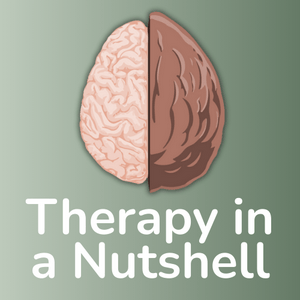
Get the free radio.net app
- Stations and podcasts to bookmark
- Stream via Wi-Fi or Bluetooth
- Supports Carplay & Android Auto
- Many other app features
Get the free radio.net app
- Stations and podcasts to bookmark
- Stream via Wi-Fi or Bluetooth
- Supports Carplay & Android Auto
- Many other app features


Therapy in a Nutshell
download the app,
start listening.

